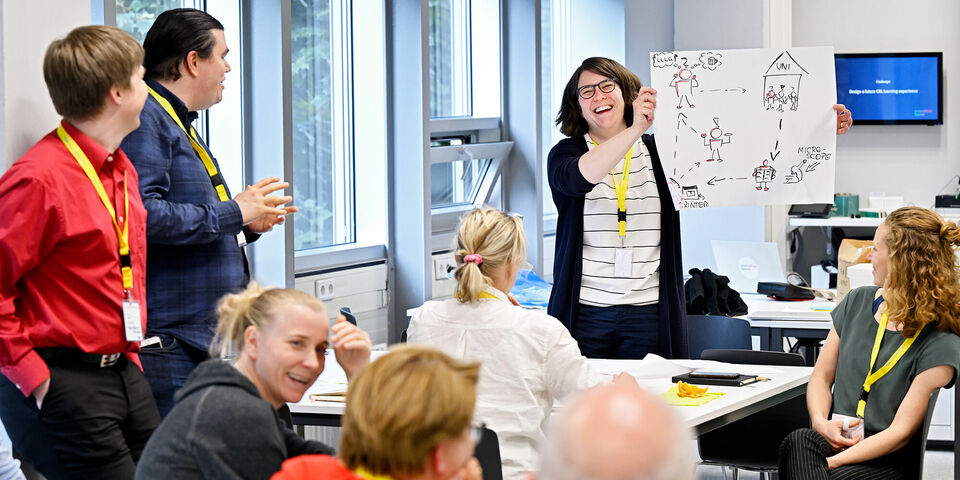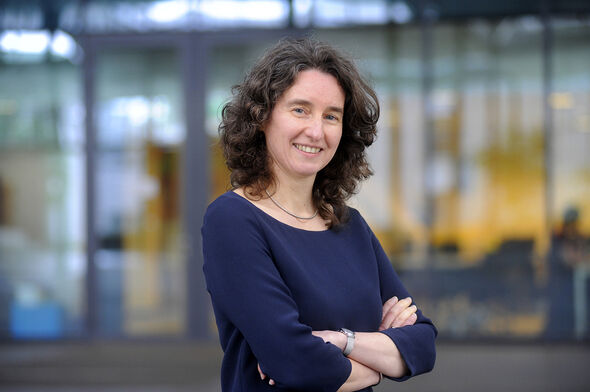TU/e hosts first national CBL conference
More than 260 visitors from the Netherlands and farther afield will gather in the Auditorium on Thursday for the first National Challenge-Based Learning Conference. Presenting their findings will be specialists from other Dutch institutions as well as researchers from TU/e. TU/e innovation Space director Isabelle Reymen, who together with ESoE’s Jan Vermunt is leading a large research project on challenge-based Learning, is pleased with the high level of interest and “with the opportunities the conference creates for knowledge sharing and collaboration.”
Monterrey, Mexico is home to the world's top knowledge center in the field of Challenge-Based Learning (CBL), an Italian study recently revealed. But, as Isabelle Reymen knows, Eindhoven isn't that far behind. “Every year four thousand students experience CBL in TU/e innovation Space. They come to us via various routes, such as electives. And we can add to that number the seven hundred members of the student teams – after all, that's also CBL. And as of September, when the new Bachelor College gets underway, CBL will become a structural part of the bachelor’s curriculum.”
TU/e was quick off the mark and has already implemented CBL on a large scale is the message contained in Reymen's words. What's more, three years ago the scientific director of innoSpace was appointed Comenius Leadership Fellow, a title that carries a grant of half a million euros in CBL research budget – some of which is invested in two postdocs. Nearly a year later this was followed by a Nationale Hogeronderwijspremie - the first ever to be granted - funding in the sum of 1.2 million euros in recognition of the innovative work being carried out by innoSpace teaching staff.
All this makes Eindhoven the ideal location for the first national conference in the field of challenge-based learning, held on Thursday June 15th. The program, comprising presentations, workshops, poster sessions and roundtable discussions, is divided into three themes: Course & Curriculum design, Student learning, and Teaching & Teacher learning. As well as TU/e researchers, speakers from Delft, Enschede, Wageningen, Amsterdam, Utrecht and Groningen will take to the stage.
Argentina
With a good 260 participants – registration is now closed – every session in the Auditorium will be well attended. All the Dutch universities and universities of applied sciences will be represented, and Reymen is also happy with the significant international interest: “Visitors are coming from Belgium, Germany, Argentina, Italy, Luxembourg, Lithuania and Norway, most of whom heard about the conference through their own networks and got in touch with us: can we come too?”
Conference organization is being handled jointly by TU/e innovation Space and the Eindhoven School of Education (ESoE), together with TU/e and 4TU.CEE. In their research on CBL, innoSpace and ESoE often work together. “ESoE professor Jan Vermunt and I submitted the application to the Comenius program jointly back in 2020 – I couldn't have done it without him and vice versa. We're also jointly supervising the two postdocs,” says Reymen. On Thursday these postdocs, Kerstin Helker and Jasmina Lazendic-Galloway, will present their interim results during various sessions.
Reymen is looking forward to the knowledge sharing that will occur during the conference and to any collaborations this may give rise to, all of which will enable the continued spread of CBL in higher education. Within TU/e, too, this knowledge sharing plays an important role, she says. “The university has a large CBL research community that gathers regularly – a unique situation.” As well as innoSpacers and ESoE staff, this community includes lecturers who are developing CBL in their own departments, within the USE learning trajectories, say, and publishing articles.
World
Reymen and her fellow researchers never lose sight of the higher goal of their work: “We want to change education because the world is changing. By presenting students with large, open challenges, we are teaching them skills that are essential for the future: thinking at system level, collaboration, taking the lead in your own learning process, and dealing with uncertainty – the necessity of which we all experienced during the corona period.”
CBL has also brought the outside world into the learning process, says Reymen: “TU/e has always collaborated extensively with other parties to conduct research, but now while they are still studying students can be introduced to trade and industry, to government – even to artists.”
Reymen sees constant signs that today's students are very keen to help create a better world. “If they also have the chance to chose a theme that fires them up – whether that's renewables or smart mobility – their motivation to go that extra mile goes up a notch.” The best ways to encourage and facilitate students to do this is the question at the heart of Thursday's conference.
The main photo at the top was taken last year during an innoXchange research session on CBL (photo: Bart van Overbeeke)



Discussion